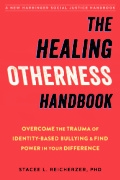Dental visits strike extraordinary fear into the lives of rational and clear-thinking people, leading many of us to avoid the dentist for years or even decades. While a common occurrence, many of us have difficulty pinpointing how and when we came to experience this fear. Mouth trauma, or even simply a lot of nervous emotions it, causes people to avoid dentists even when they are having pain from major tooth problems. Here’s an explanation of why you may fear the dentist and some strategies to help you address this.
To start, we’ll break the dentist avoiders into two groups: those who have had mouth trauma and those who have not.
The mouth trauma group may be broken into two subgroups:
Those who have undergone painful procedures at the dentist office: Probably only a handful of people who avoid the dentist do so because of bad experiences in prior visits. Sure, the scraping of plaque off the teeth, having cavities filled, and any type of mouth surgery and orthodontia are unpleasant, even painful experiences that are no doubt making many of you wince in just reading these words. Avoiding the dentist keeps us at a distance from these types of procedures, if temporarily. If you truly had a bad dentist, you should know that the vast majority are quite good and many are great. Yelp is a useful resource for finding a gentle dentist near you because the reviews were probably written by people who had fears similar to yours.
Those who have had oral sexual trauma: A large number of people whose truths are told not nearly enough are survivors of oral sexual trauma. Child and adult survivors of sexual abuse maintain physical memories which can last a lifetime and that can be instantly triggered decades after an event. I probably don’t need to take us further down this road to clarify how and why a dental visit could be re-traumatizing to a survivor. If this is your story, know that a therapist who is trained in sexual abuse trauma can help. If you contact me through my website or media, I’ll assist you in locating the resources you need.
Our second group is those who have had no physical trauma.
Those who were scared by proxy: Perhaps the largest group are those whose fear of the dentist was delivered via older siblings, kids at school, and people surrounding a young child or adolescent ahead of a first dentist visit. Children often frighten each other by telling exaggerated or completely fictitious horror stories. Good-natured ribbing (if ribbing is ever really good-natured) may have become part of your expectation so that you arrived at the dentist’s office with exaggerated fear. If the visit involved painful procedures, this in some ways delivered on your expectation and remained big and scary in your memory as childhood fears are wont to do. As such, the dentist became associated with bad experiences and anxiety about future visits; thus cementing a lifetime of worry that far surpasses the relative ease of more routine visits.
Those who were scared by dentists in movies: A fourth group, one my hygienist told me about during my last visit, saw movies like “Little Shop of Horrors,” maybe had nightmares about them, and over time developed a progressive state of dental fear through the mechanisms of their own imaginations. (it’s not entirely hard for me to imagine this, recalling as I do how seeing “Jaws” the summer after I was in Kindergarten led to a freak-out in a saltwater pool nearly 10 years later.)
Even people who have had no real oral trauma can still have a memory network that’s triggered as if the fear was based on real-life events, creating very real anxiety that can be crippling at times. If this is the case for you, consider the following strategies to help you get back in the dentist chair and get your teeth cared for:
- Separate fact from fiction: Read the reviews and see what people are saying. These are real accounts. The childhood stories and silly movies are not.
- Talk to the staff about your fears ahead of your first visit. They deal with dentist anxiety all the time. They can tell you a lot about what to expect from your visit and reassure you that you’re making the right decision in choosing that particular dentist.
- Don’t read too much into your fear. Some procedures are painful, but not as painful as chronic tooth problems that go untreated. Also, even pain that’s associated with extensive surgeries has a beginning, a middle, and an end; like a book or movie. Any pain is temporary.
- On the day of the visit and even before, don’t let your blood pressure skyrocket. Whenever you start noticing intrusive thoughts or elevated fear, take three deep breaths (in through the nose, out through the mouth) to clear your head. Use the three deep breaths method to punctuate your actions throughout the day: as you open your closet to get clothes to wear, as you grasp the doorknob to leave for the day, as you turn on your laptop. This intentional effort will slow you down and allow you to be mindful and present.
- Have a trusted friend drive or accompany you to the dentist.
Dental hygiene isn’t something that most of us look forward to (although I happen to have liked my dentists over the years and enjoy visiting with the staff people every few months). Nonetheless, it’s essential to maintaining good health for our mouths, as well as for general digestion and other related physical needs. Once you’re on a routine maintenance schedule, the fear will be much less severe as the bad associations are replaced with positive experiences of interactions with friendly people who are devoted to your dental health.

